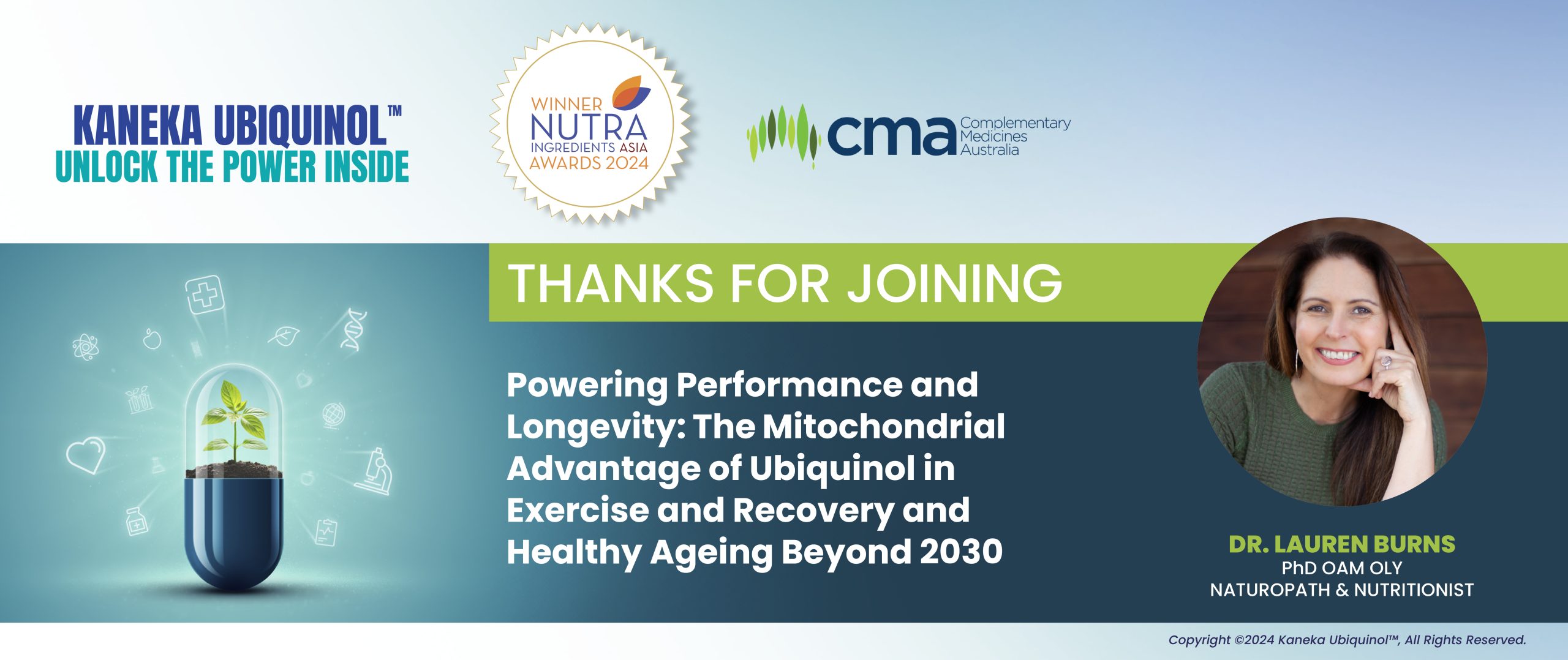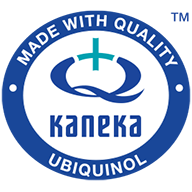23rd November 2018 l Sporteluxe
Jan 2019Recent Article
What Is CoEnzyme Q10 And How Does It Help With Energy?

Whether it’s because we’re having a particularly stressful week, are recovering from a big night or are just having trouble getting out of bed in the morning, most of us could use a little energy boost from time to time. When this happens, we often turn to our trusty caffeine to perk us up or take a little power nap (which half the time, leaves us feeling even more sleepy and disoriented!). But what most of us underestimate is how much what we eat affects our energy levels. And while you may be aware that a lack of magnesium and iron can lead to you feeling weak and lethargic, there’s another important energy-boosting supplement your diet may be lacking—and you’ve probably never heard of it! Enter, CoEnzyme Q10.
What is CoEnzyme Q10?
Also known as CoQ10, CoEnzyme Q1 is an antioxidant found within the mitochondria in your body’s cells. It creates energy within those cells and is essential for protecting them from free radical damage and disease-causing bacteria or viruses. “Inside the mitochondria it helps synthesise ATP or Adenosine Triphosphate; a key form of fuel that our cells require to create the energy to perform their cellular processes,” says Rick Hay, Healthista’s nutritional director.
The body produces CoEnzyme Q1 on its own, however it naturally decreases with age. Nutritional deficiencies, such as vitamin B6 deficiency, genetic defects in CoQ10 synthesis and disease within the body can also accelerate CoQ10 deficiency.
What do you need CoEnzyme Q10 for?
Apart from improving your general energy levels and protecting the body from disease, CoEnzyme Q10 has also been found to reduce physical fatigue in the gym. ‘Those who exercise regularly may find taking CoQ10 useful—in fact, COQ10 is often the go to supplement for those who want to enhance natural energy production,’ says Hay. In one study, CoQ10 supplementation was found to improve feelings of fatigue and physical performance, as well as reduce recovery period.
Supplementing CoEnzyme Q10 is also becoming popular in the beauty world, thanks to its powerful anti-ageing properties. It helps to reduce free radical damage and therefore, the things that come with it—including premature wrinkling and sensitised skin.
What foods are CoEnzyme Q10 found in?
CoQ1 is found naturally in oily fish like sardines and mackerel, peanuts, lentils, oranges, strawberries, organ meats, spinach, broccoli, soy beans, sweet potato, cauliflower and eggs. However, many people choose to take it in supplement form for a convenient dose, including BioCare’s Microcell CoQ10 or Country Life’s Coenzyme B-Complex Cap. As always, check with your GP before adding any supplements to your diet.
https://sporteluxe.com/the-energy-boosting-supplement-youve-never-heard-of-but-probably-need/
You can share this by:
Keep up-to-date with Ubiquinol News
Ubiquinol Headlines

Retail Pharmacy: Healthy Ageing in the Spotlight
Apr 2025Category: Ageing, Antioxidants, APP, Conference, Conferences, Endurance, Health, Health Industry, healthy ageing, Immunity, In The News, Mitochondrial health, Nutrition, Online, Stress, Ubiquinol, Vitamins, wellnessRead More
Retail Pharmacy: The Impact of Loneliness on Heart Health
Apr 2025Category: cardiovascular health, dr ross walker, Heart, In The News, Mitochondrial health, Online, UbiquinolRead More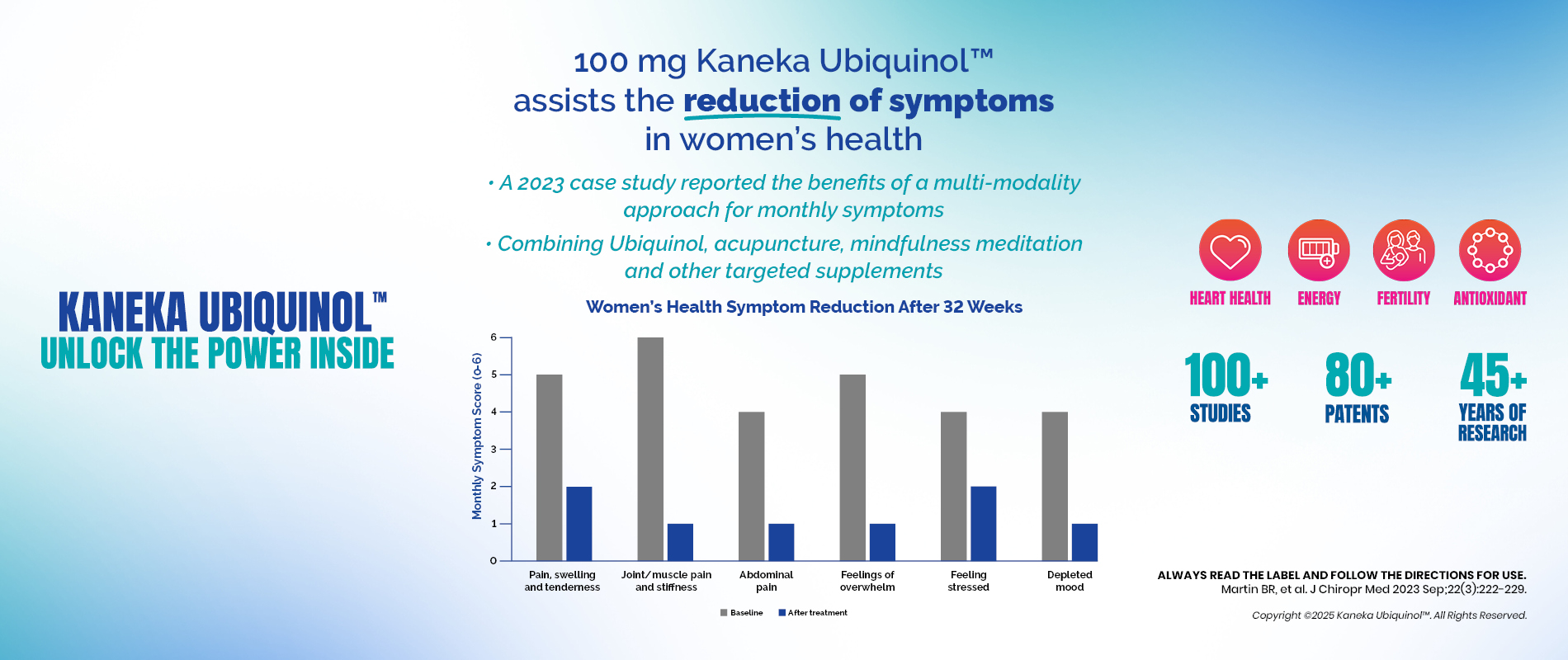
Ubiquinol for Women’s Health
Apr 2025Category: Ageing, Antioxidants, Fertility, Kaneka, Mitochondrial health, Ubiquinol, wellness, Women's HealthRead More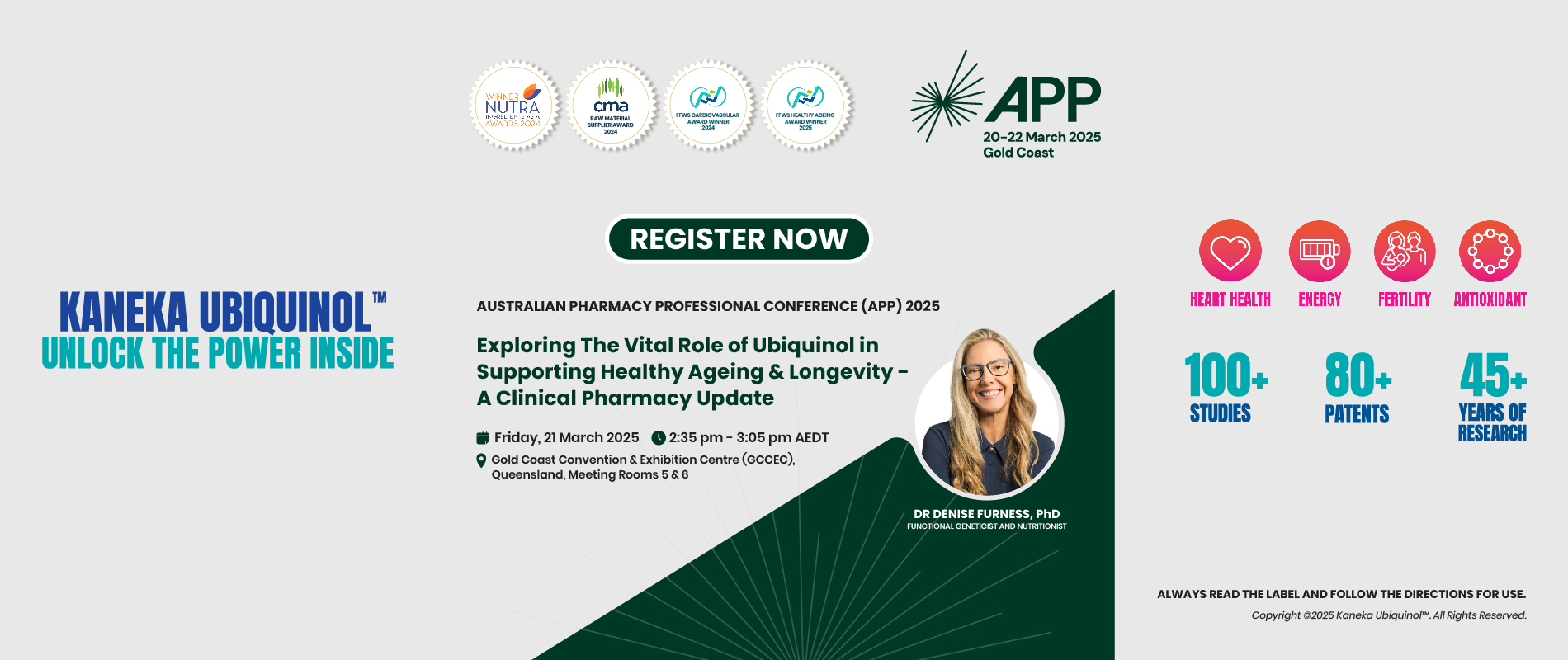
Kaneka Ubiquinol™ at APP 2025: Advancing Healthy Ageing & Longevity
Mar 2025Category: Ageing, Antioxidants, APP, Conference, Conferences, Energy, Fatigue, Health, Health Industry, healthy ageing, Kaneka, Mitochondrial health, Nutrition, UbiquinolRead More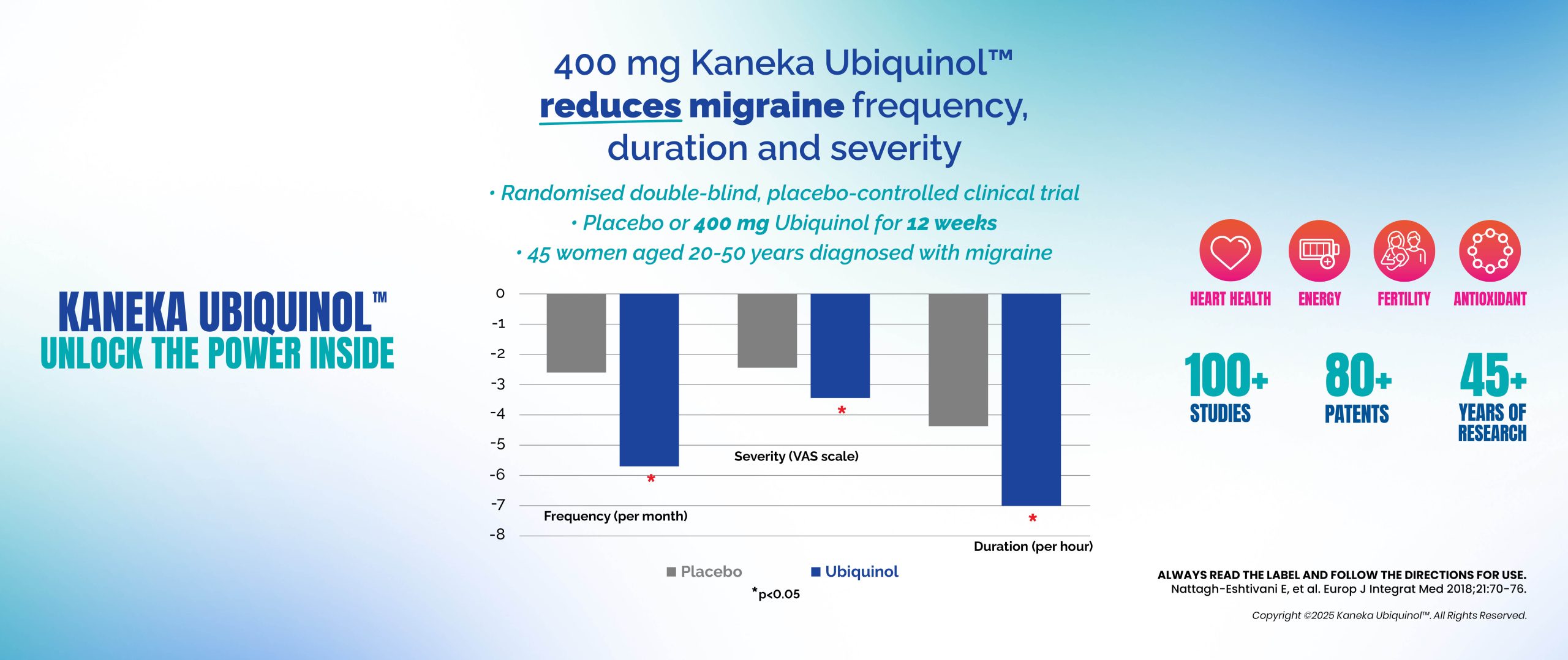
Ubiquinol: Supporting Migraine Relief Through Cellular Energy
Jan 2025Category: Antioxidants, complementary medicine, Energy, Fatigue, Health, Health Industry, healthy ageing, Kaneka, Mitochondrial health, Nutrition, Stress, Ubiquinol, Vitamins, wellnessRead More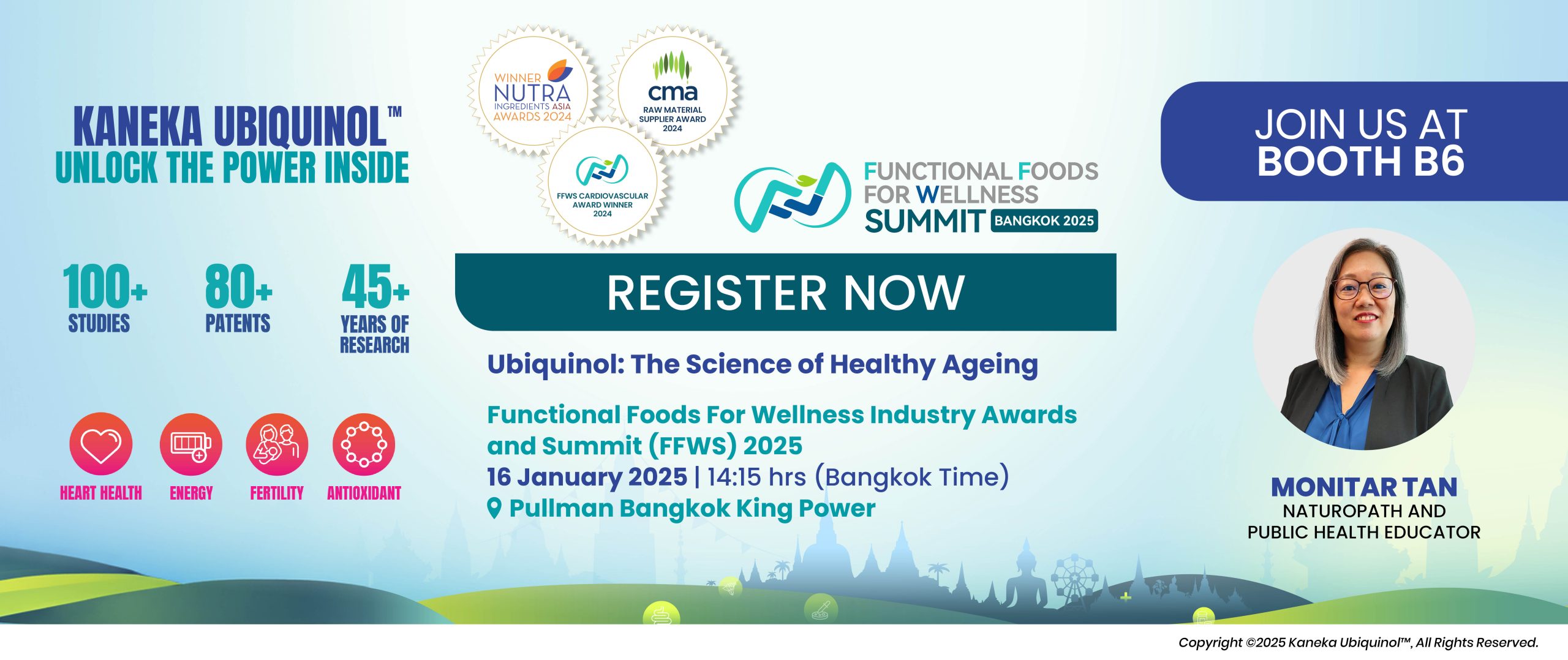
Kaneka Ubiquinol™ at Functional Foods for Wellness Industry Awards and Summit, #FFWS2025
Jan 2025Category: Ageing, Antioxidants, Awards, cardiovascular health, Conference, Conferences, Energy, Fatigue, FFWS2025, Health, Health Industry, healthy ageing, Kaneka, Menopause, Mitochondrial health, Nutrition, Ubiquinol, VitaminsRead More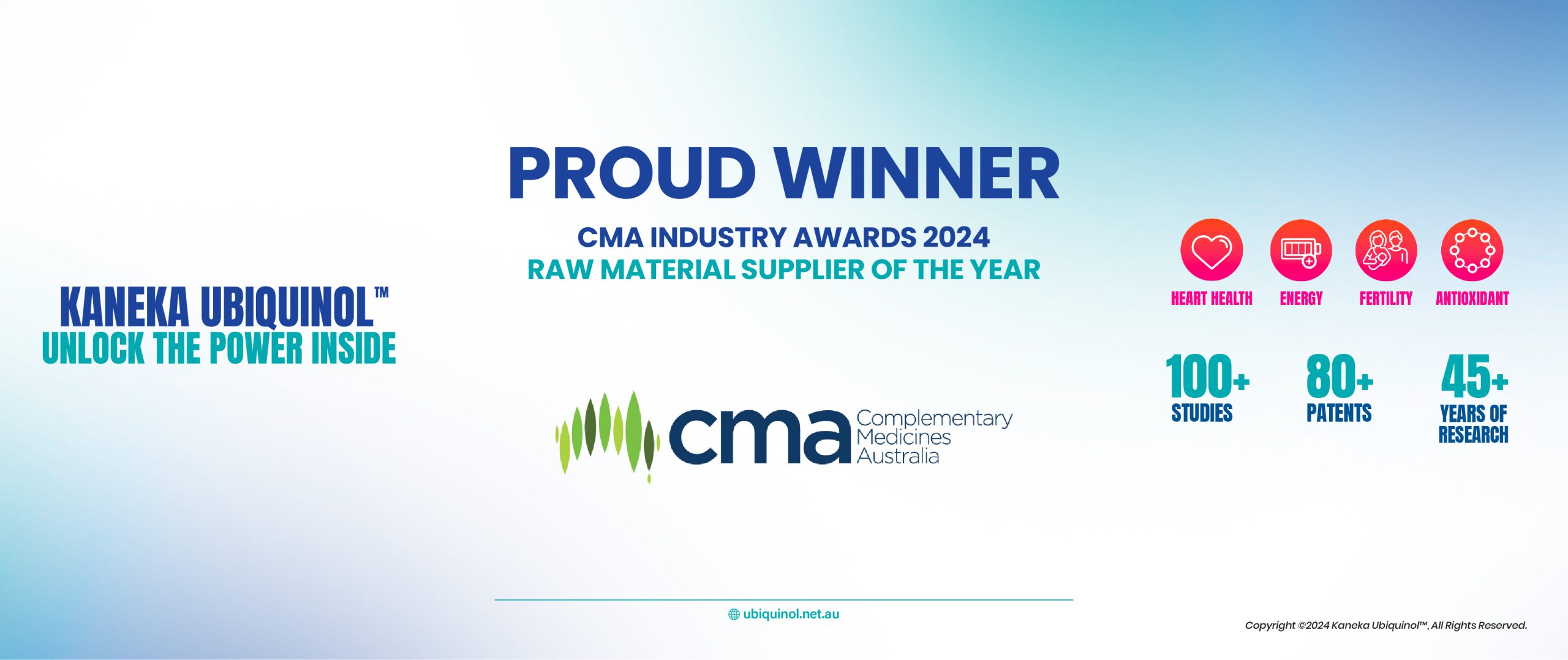
Kaneka Ubiquinol Wins Prestigious Complementary Medicines Raw Material Supplier of the Year Award 2024
Dec 2024Category: Ageing, Awards, cardiovascular health, complementary medicine, Conference, Conferences, Endurance, Energy, Fatigue, Fertility, Fitness, Health, Health Industry, healthy ageing, Heart, Immunity, In The News, Kaneka, Lungs, Memory, Mitochondrial health, Nutrition, Online, Stress, Ubiquinol, Vitamins, wellnessRead More